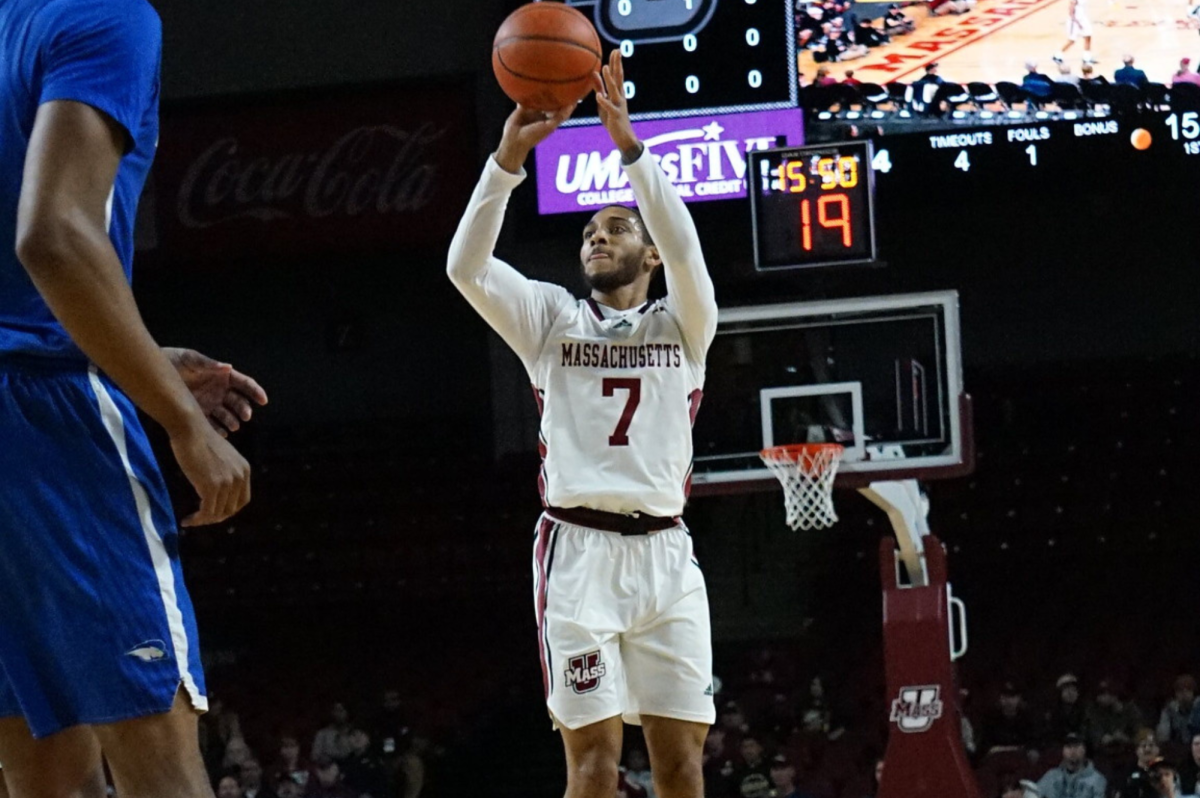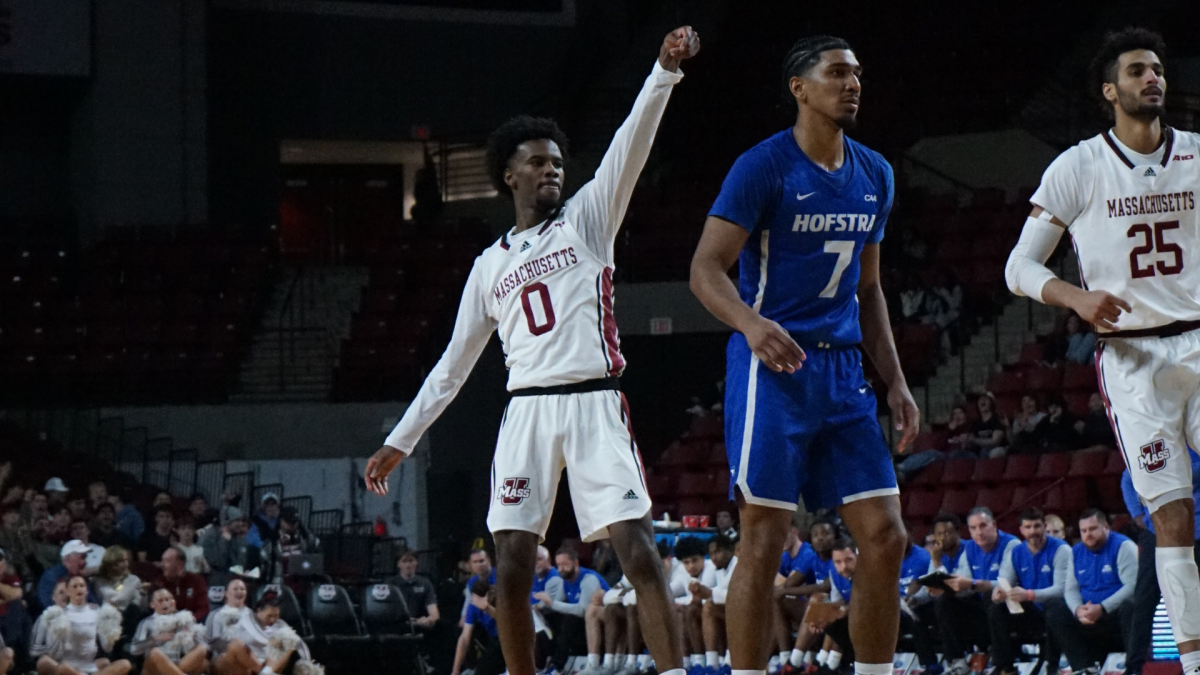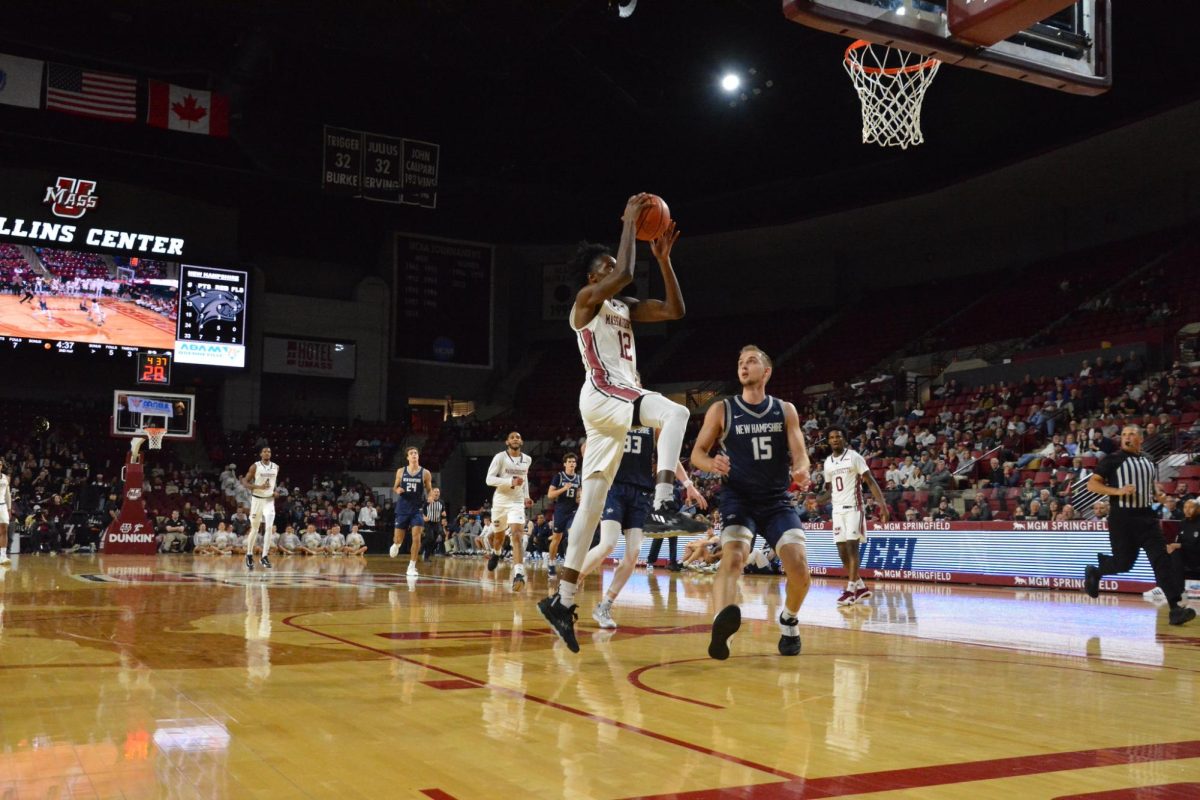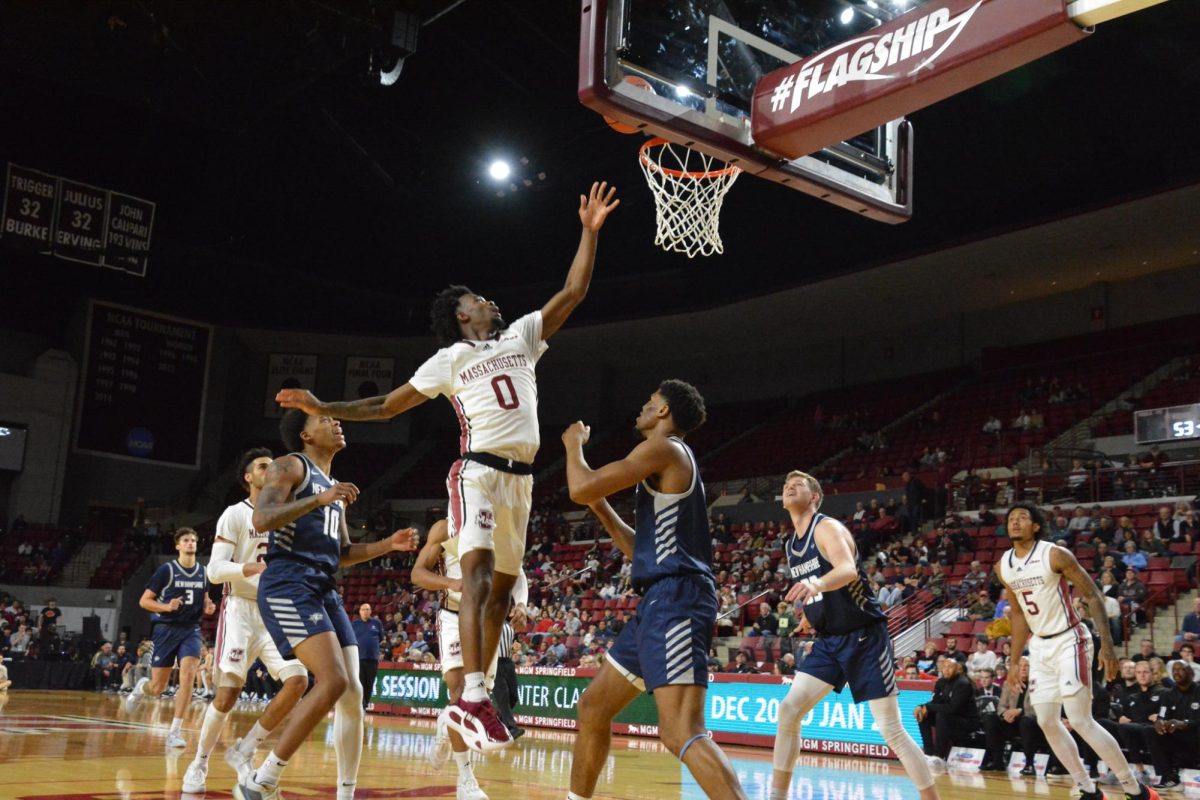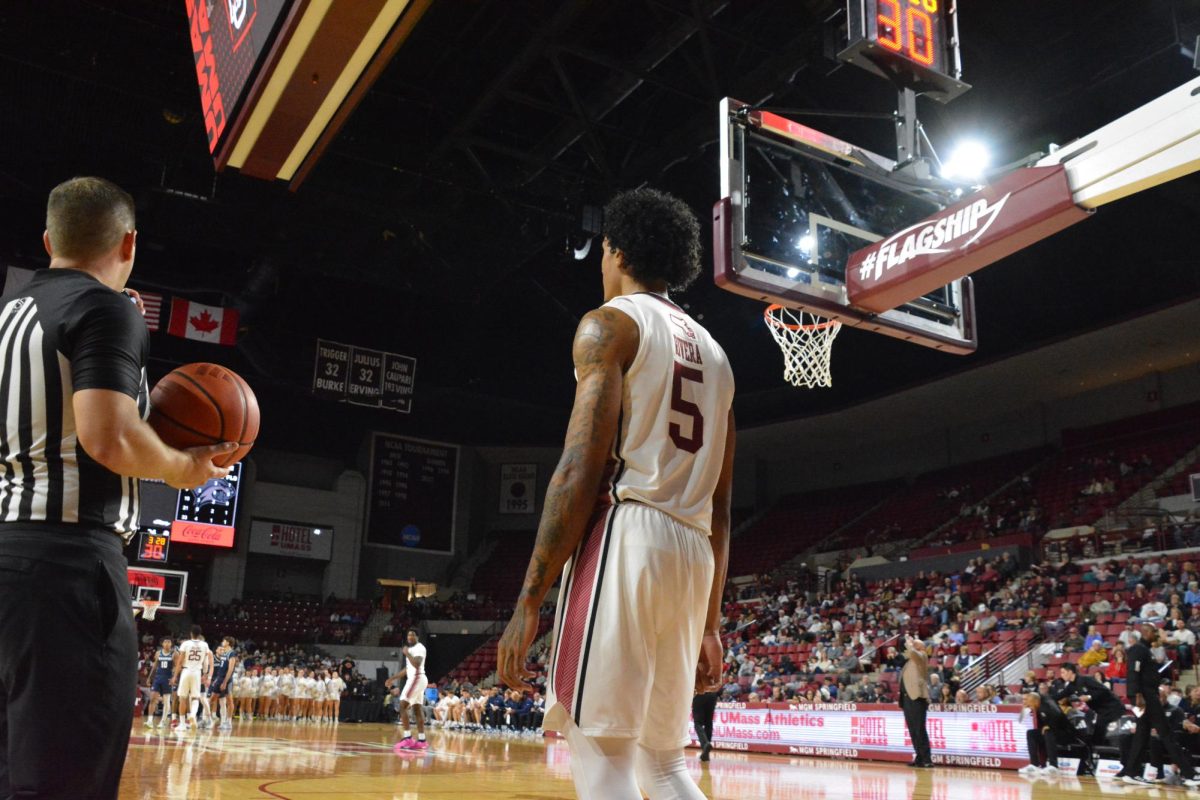
Derek Kellogg got in Cady Lalanne’s ear, maybe as close as one can get and a little too close for comfort.
The Massachusetts men’s basketball coach had seen enough as he saw his sophomore center have a hard time going up against Miami (Fla.) center Reggie Johnson. With a size advantage of more than 40 pounds, Johnson was continuously overwhelming his counterpart, sending back more than a few of his shots and forcing him into many point-blank misses.
At a break in the action, Lalanne walked over to the bench, where his coach had plenty to say him.
“He’s got the ball six times one foot from the basket and he didn’t get it in,” Kellogg said. “I told him, ‘You’re as good as those guys and can be better.’”
Through six games, the Minutemen are only 3-3 and all of their victories have occurred after last-second, go-ahead baskets. There’s a popular notion that the team could be winless right now, which isn’t totally unrealistic. They have yet to put together a complete, 40-minute effort and very easily could have lost each of the games that they’ve won.
The common scapegoat for the team’s struggles early on this season is that they shoot too much. And it’s pretty easy to blame it on that, considering UMass is shooting at a putrid clip of 28.8 percent from 3-point range so far this season.
That’s not the problem, though. Eventually, those 3-pointers are going to start falling. And the reality of the situation, right now, is that UMass doesn’t have many other options than to launch 3-pointer after 3-pointer – and that’s the real problem.
If you remember, the Minutemen weren’t exactly lighting it up from 3-point territory at the beginning of the 2011-12 season, either, and started the first six games shooting just 32.3 percent, which included a 2-for-23 effort against Florida State. In fact, UMass actually had more 3-point attempts through six games last year (164) than this year (156).
So, whether you like it or not, the Minutemen are a 3-point shooting team. It’s simply in their DNA. You can say they “live and die by the 3,” but when they’re hitting them, like they were for most of the second half of last season, they are very hard to beat.
The problem, however, doesn’t lie beyond the 3-point line, but in the paint.
Consider this: When then-senior center Sean Carter finished his career last season, it wasn’t viewed as the biggest loss in the world. He was the only Minuteman contributor not returning and he had a more than capable backup taking over in Lalanne. In fact, many, including myself, thought Lalanne would be an upgrade from Carter.
Six games in to this season, Lalanne hasn’t quite played up to that potential. Of course, he’s still working his way back to being 100 percent healthy after offseason foot surgery, but the fact of the matter is that this team, right now, is lacking a true, dependable inside presence. And Kellogg believes Lalanne is the only one that can really make that happen.
“We need to have some post presence on both ends of the floor, and it really can’t be from Sampson (Carter), or (Terrell Vinson) or Maxie (Esho) or (Raphiael Putney),” Kellogg said. “It’s gotta be that big body presence down there.”
The assertion was made even more evident in the Minutemen’s 75-62 loss to the Hurricanes. Johnson and teammate Kenny Kadji made life miserable for Lalanne, who finished 1-for-7 from the field with just four points and six rebounds in 20 minutes. Not exactly ideal numbers for a starting center.
“For us to be successful … I think Cady needs to be a presence for us in there,” Kellogg said. “He did a better job defensively and did some good things, but we need him to be close to a double-double guy if we’re going to compete with the top teams that everybody thinks we can and wants us to.”
There’s no question that a consistent inside presence can add a new dimension to this team. Carter didn’t average double-doubles last year, but as an experienced veteran, he provided solid defense and was good for a big game every now and then.
Lalanne clearly has the ability to do what Carter did and then some. He possesses all of the necessary tools to be a successful center, but he’s still a little bit raw and inexperienced (he only played in 14 games last year due to injury). As he matures, so will a Minuteman team that has consistently been forced to settle for 3s rather than pound the rock inside.
The question, now, is how quickly that maturation process can happen. And as Saturday showed, finding the answer might just be exactly what UMass needs.
Stephen Hewitt can be reached at [email protected] and followed on Twitter @steve_hewitt.


